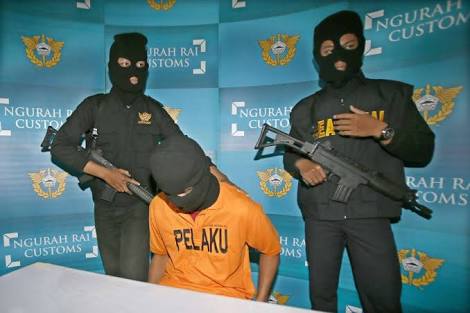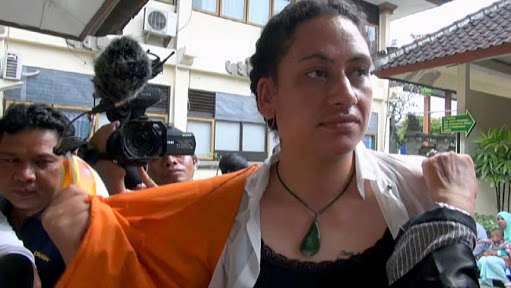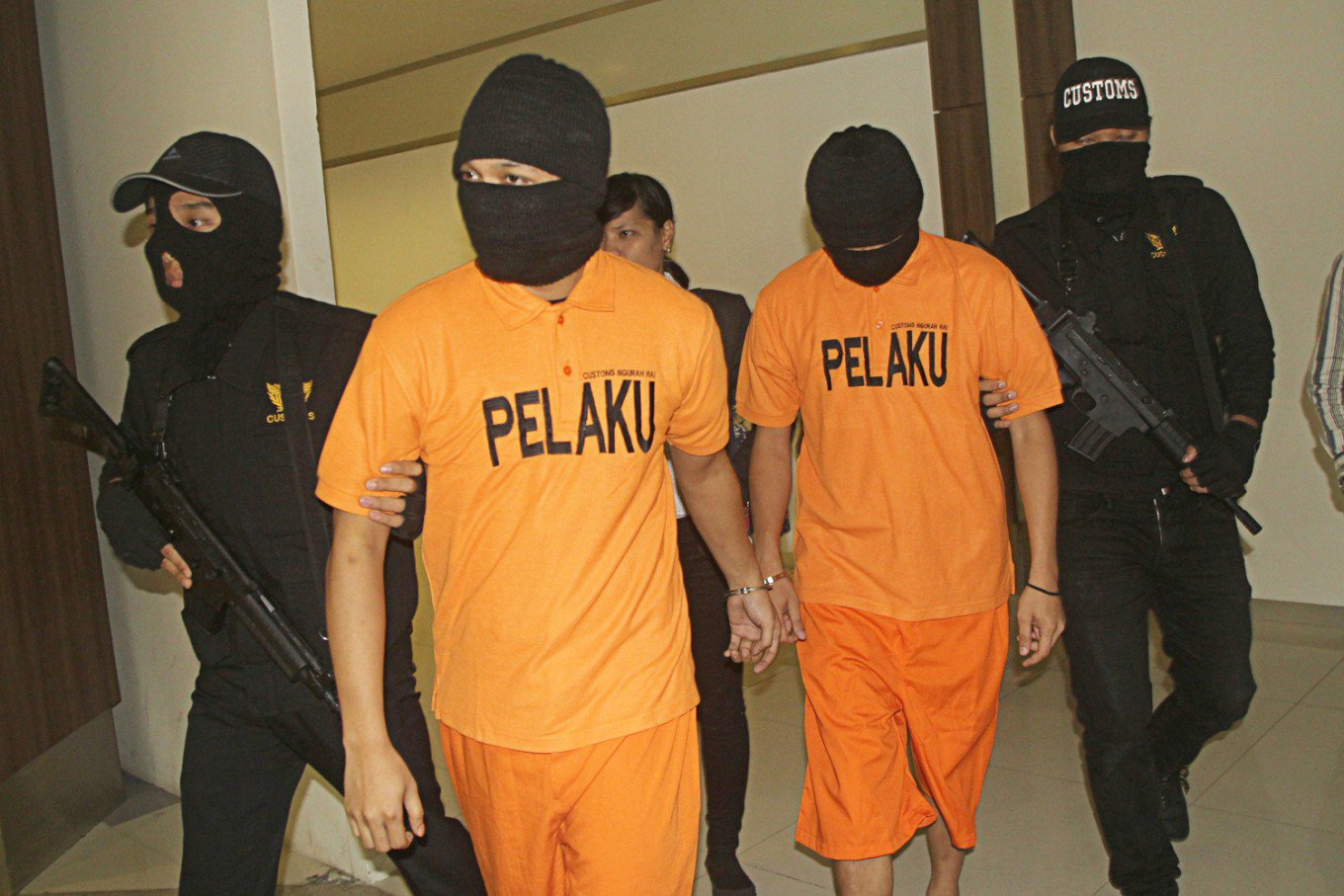Mohammed Noh flew to Bali on April 27 last year to celebrate his birthday in style.
The Singaporean DJ was meeting friends on the island, and they planned to party at Ku De Ta and Potato Head, two upmarket beach clubs where the 33-year-old had previously played gigs.
Not wanting to risk buying party pills locally, Noh had travelled by road to Johor Bahru in Malaysia the week before and bought 10 ecstasy tabs, which he hid in a jar of Xytol chewing gum.
He did the same flying to Bali, but immigration officials, noting he had overstayed his visa by a few days on his last trip, took him aside to question if he wasn’t planning on working while here.
Curious Customs officials joined the fray before going through his bag. One looked into the bottle of gum and spotted a pill.
“I think you know the feeling when you realize you’re in the shit, deep in the shit, and there is nothing you will be able to do,” he says.
“There are a million thoughts going around in your mind: how am I going to tell my folks? How am I going to tell my boss? My grandparents … this was going to kill them.”
There is no question that the pills were only for Noh and his mates for his April 29 party, but officials accused him of being part of a syndicate that was testing the water for bigger drug runs and charged him with trafficking.
In October last year, he was sentenced to seven years in jail. Seven years for 10 ecstasy pills!
You frequently hear the expression “do the crime, do the time”, but in Indonesia the legal system is so Byzantine there is simply no way of weighing risk against reward — even if you were a commercial dealer.
Noah’s sentence is easily the most iniquitous of all those handed down to the foreigners currently in Kerobokan, but there are many equally unfair among the Indonesian inmates.
Noah’s problems started with his lawyer.

Just say Noh … Singaporean Mohammed Noh after his arrest
A parade of ambulance chasers presented themselves to him while he was being questioned, boasting of their credentials and contacts.
It is a dizzying choice in the middle of a crisis and you’re given wildly conflicting advice. Some people suggested I retained the first lawyer the police recommended; He seemed to have the run of the station and had worked on the team that got astonishingly light sentences for an expat cocaine gang a couple of years earlier.
Others warned against hiring a lawyer who was so at ease with the police on the grounds they were probably working in cahoots with authorities.
Fortunately for me, the decision was effectively taken out of my hands. My astonishing team of Chris Pedersen, Rob Bradley, Andrew Cockburn and a few others realized that under the circumstances I was probably incapable of making the decision for myself, so they made it for me and engaged Pak Haposan and his team.
If only Noh had done the same.
His lawyer turned out to be utterly self-serving, hopelessly unconnected and criminally incompetent.
He was told that for a fee of around $30,000, the lawyer would get the charges reduced to Article 127 (user) and he would likely end up serving no more than two years.
That never happened — and when he was finally sentenced the lawyer didn’t even bother showing up in court.
Noh appealed using a different lawyer, but the damage had been done. In 90 percent of cases, an appeal by the defense results in an increased sentence — judges hate having their decisions questioned — but this time the original verdict was merely upheld.
He has no other avenue of appeal apart from Presidential Clemency, but only capital cases ever reach his desk.
Most of the inmates in my block are professional traffickers, but their sentences differ wildly regardless of the similarity of their crimes.
Two Russians caught separately and days apart with just under a kilo of hashish in their stomachs received sentences of eight and 12 years respectively. An Australian with 1.5 kg of hash plus 200 gms of crystal meth got seven years.
Look at the cases of Singaporean Desmond Goh and New Zealander Myra Williams, caught days apart at the airport just a week before my arrest.

Goh figure … Desmond Goh got 15 months while Myra Williams got two and a half years
 Desmond was carrying 0.48 grams of crystal meth and two ecstasy tablets. He was sentenced last month to 15 months in jail.
Desmond was carrying 0.48 grams of crystal meth and two ecstasy tablets. He was sentenced last month to 15 months in jail.
Myra was carrying 0.49 grams of meth; she got two and-a-half years.
I was sentenced to seven months in jail for possession of 10.03 grams of hashish. An Indonesian in the block next door was sentenced on Tuesday to five and-a-half-years for 5 grams.
The reason for the difference in all these cases is, of course, money. I guess the only non-incriminating way of saying it is: “you get the legal defense you pay for”.
That was the answer I gave ABC’s Four Corners in an interview last week for a documentary they’re making on “A Day in The Life of Kerobokan”.
They’ve been given unprecedented access to the prison — I think they’ve been pretty shocked at how freely they’ve been able to roam — but they’ll still get a somewhat sanitized version of what life here is really like.
I don’t think I’ve had to flat-out lie in any of the interviews I’ve given them, but I’ve obviously sinned by omission.
When asked about drugs, for example, I replied that the Kerobokan was not unlike prisons elsewhere in the world and that even in Australia the authorities regularly reported that drugs were the biggest problem.
When asked about corruption, instead of saying the guards were all on the take I replied that the government had readily acknowledged graft existed across all government institutions and were making efforts to stamp it out — and the prison system was no different.
Everyone hid their phones and there were no drugs in sight, but I think the TV team otherwise got a pretty accurate picture of what life is like in here.
Of course there is an element of “apart from that, Mrs Lincoln, how was the play”, but I’ll be interested in seeing the show when it comes out in a few weeks.
But back to the disparity in sentences.
Two Malaysians were caught at the airport in October with a veritable pharmacopeia — 70 grams of marijuana, 3 grams of meth, 15 ecstasy tablets and 105 Erimin pills. They were planning one hell of a bender.
Aliff Azhar, 22, an engineering student at university, had the weed hidden in his socks, while the rest of the drugs were in luggage belonging to Mohammed Shahzadi, 36, a sports instructor.
Aliff comes from a wealthy family and at pre-sentencing next week is expecting to get a prosecution recommendation of two years. He is hoping for a final sentence of 12 months.
Mohammed has fewer resources and therefore different legal recourse. He expects prosecutors to demand seven years and hopes for a sentence of five.
Partners in crime, but certainly not partners in time.

Just eight days to go! We’re thinking of you cuz!
Stay safe, Foxy. It’s so near now. Just be extra careful.
Your last day and night! CU soon!
& days…Time to take out that chuff chart mate.
Great stuff, take it easy and make the most of Thai rehab
My hero. You set an example of how we should all face bad times.
just a few more days to go David, stay save!!